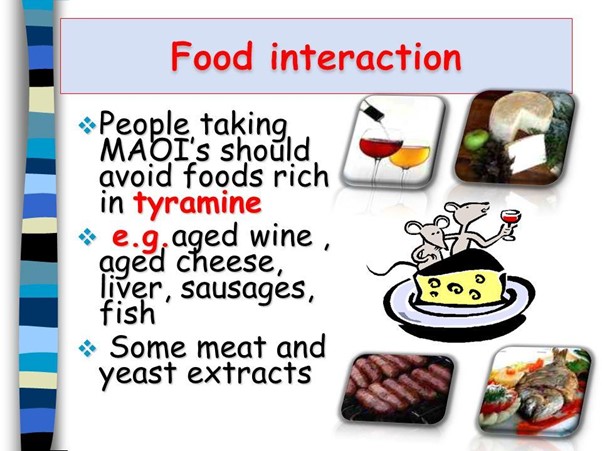A nurse is teaching a client who has a new prescription for an MAOI. Which of the following foods is contraindicated with this medication?
Cheese
Potatoes
Grapefruit
Eggs
The Correct Answer is A
Choice A reason:
Among the options listed, cheese is the food that is contraindicated with MAOI use. Cheese is high in tyramine, and consuming it while taking MAOIs can lead to a potentially life-threatening hypertensive crisis.
An MAOI (Monoamine Oxidase Inhibitor) is a type of medication used to treat depression, anxiety, and other psychiatric disorders. When taking MAOIs, it is important to avoid certain foods that contain high levels of tyramine, as it can lead to a dangerous increase in blood pressure known as a hypertensive crisis.
Choice B reason:
Potatoes: Potatoes are not contraindicated with MAOI use. They do not contain significant levels of tyramine.
Choice C reason:
Grapefruit: Grapefruit is not contraindicated with MAOI use. However, it can interact with certain medications, so it's always a good idea to check with the healthcare provider or pharmacist about specific medication interactions.
Choice D reason:
Eggs: Eggs are not contraindicated with MAOI use. Like potatoes, they do not contain significant levels of tyramine.

Nursing Test Bank
Naxlex Comprehensive Predictor Exams
Related Questions
Correct Answer is C
Explanation
A. Saying "I'm sure your family does not want you to die" is not a therapeutic response, as it invalidates the client's feelings and imposes the nurse's assumption on the client. This option is incorrect.
B. Asking "Why would you believe such things?" is not a therapeutic response, as it sounds judgmental and confrontational, and may make the client feel defensive or ashamed. This option is incorrect.
C. Asking "How does this make you feel?" is a therapeutic response, as it encourages the client to express their emotions and shows empathy and interest from the nurse. This option is correct.
D. Saying "You should talk to your family about your feelings" is not a therapeutic response, as it implies that the client is responsible for resolving their family issues and may increase their guilt or anxiety. This option is incorrect.
Correct Answer is A
Explanation
A is correct because facilitating an interdisciplinary conference at the new facility for the family can help address their concerns, provide information about the client's plan of care, and promote continuity of care.
B is incorrect because referring the client and family to a social worker for assistance and a follow-up meeting is not enough to address their immediate concerns and does not involve other members of the health care team.
C is incorrect because reassuring the client's family that the same provider will provide care at the new facility may not be true and does not address their specific concerns about the level of care.
D is incorrect because telling the family that the rehabilitation facility has an excellent client care record is not enough to address their specific concerns and may sound dismissive.
Whether you are a student looking to ace your exams or a practicing nurse seeking to enhance your expertise , our nursing education contents will empower you with the confidence and competence to make a difference in the lives of patients and become a respected leader in the healthcare field.
Visit Naxlex, invest in your future and unlock endless possibilities with our unparalleled nursing education contents today
Report Wrong Answer on the Current Question
Do you disagree with the answer? If yes, what is your expected answer? Explain.
Kindly be descriptive with the issue you are facing.
